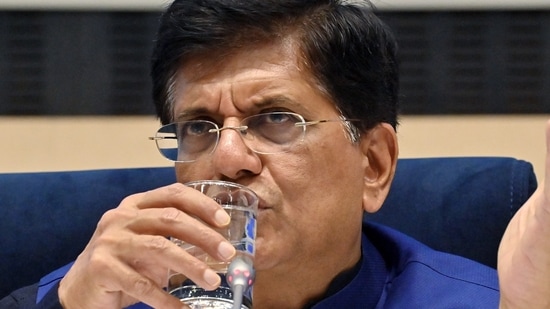Commerce and Industry Minister Piyush Goyal on Wednesday questioned Amazon’s announcement of USD 1 billion investment in India, saying the US retailer was not doing any great service to the Indian economy but filling up for the losses it had suffered in the country.

He said that their huge losses in India “smells of predatory pricing”, which is not good for the country as it impacts crores of small retailers.
Read more: Byju Raveendran explains why firm has not paid July salaries: ‘Not in control…’
Launching a report on ‘Net Impact of e-commerce on Employment and Consumer Welfare in India’ here, the minister lambasted the e-commerce companies, questioning their business model that has been impacting small retailers in the country.
“When Amazon says that we are going to invest a billion dollars in the country, we celebrate, and we forget that the billion dollars are not coming in for great service or investment to support the Indian economy. They made a billion-dollar loss in their balance sheet that year, they had to fill in that loss.
Read more: JM Flexicap Fund gave 80% return in 1 year: These are top performing SIP mutual funds
“And how did that loss get caused, they paid ₹1,000 crores to professionals. I do not know who these professionals are…I would love to know, which chartered accountants, professionals or lawyers get ₹1,000 crores unless you are paying all the top lawyers to block them so that nobody can fight a case against you,” the minister said.
He wondered whether the ₹6,000 crore loss in one year does not smell of predatory pricing, as they are just an e-commerce platform and those companies are not allowed to do B2C (business to consumer) business.
As per the policy, the e-commerce platform legally can not do B2C in the country.
The minister alleged that these companies only re-route all the businesses through an entity to show that it is B2B.
“How are they doing it? Should this not be a matter of concern for us,” he said.
He added that the e-commerce sector has a role, but one has to think “very” carefully and cautiously about what that role is.
“How that role can be in an organised fashion. Is predatory pricing policies good for the country?” Goyal asked.
He also said that e-commerce companies are eating into the small retailer’s high-value, high-margin products that are the only items through which the mom-and-pop stores survive.
The minister also said that with the fast-growing online retailing in the country, “Are we going to cause huge social disruption with this massive growth of e-commerce”.
Citing examples of Western countries, Goyal said Europe and America have seen the consequences of this.
“What has happened to the mom-and-pop stores there? How many do you see surviving, why did Switzerland allow e-commerce until recently (so late),” he said, adding “…I am not wishing away e-commerce, it is there to stay”.
Further, he said one has to see the impact of cloud kitchens on restaurants and people buying food items online.
“We will land up becoming a country of couch potatoes, watching OTT and having food at home every day,” he said.
Commenting on online pharmacies, the minister said, “We have to assess what is happening to 5 lakh pharmacies of the country”.
He expressed concern over these firms selling medicines online.
“Online, you can order whatever you want…it is a matter of concern,” Goyal said, adding “How many mobile stores do you see in the corner, and how many were there 10 years ago”.
He pointed out that India is not a developed nation like the US and Switzerland with high per capita income, and a large section of people need affirmative action and help here.
“Of course, I do not deny that technology will play its part, technology is a means to empower, to innovate, to meet consumer requirements, probably sometimes more efficiently, but we will have to see that it grows in an orderly fashion,” he said.
Read more: Ola CEO Bhavish Aggarwal on how he spends his money: ‘Never bought a single share in my life’
People have to see that this connectivity and convenience is citizen-centric, he said, adding that in the race for market share of online retailers at 27 per cent a year, “we do not land up causing huge disruption for the 100 million small retailers across the country”.
Amazon India is facing rising competitive intensity in India from players like Flipkart and SoftBank-backed Meesho, as well as the onslaught of firms like Blinkit, Swiggy’s Instamart and Zepto that are making aggressive inroads into the market as busy consumers opt for the convenience of instant delivery of grocery and many other household items.


